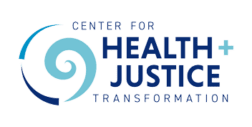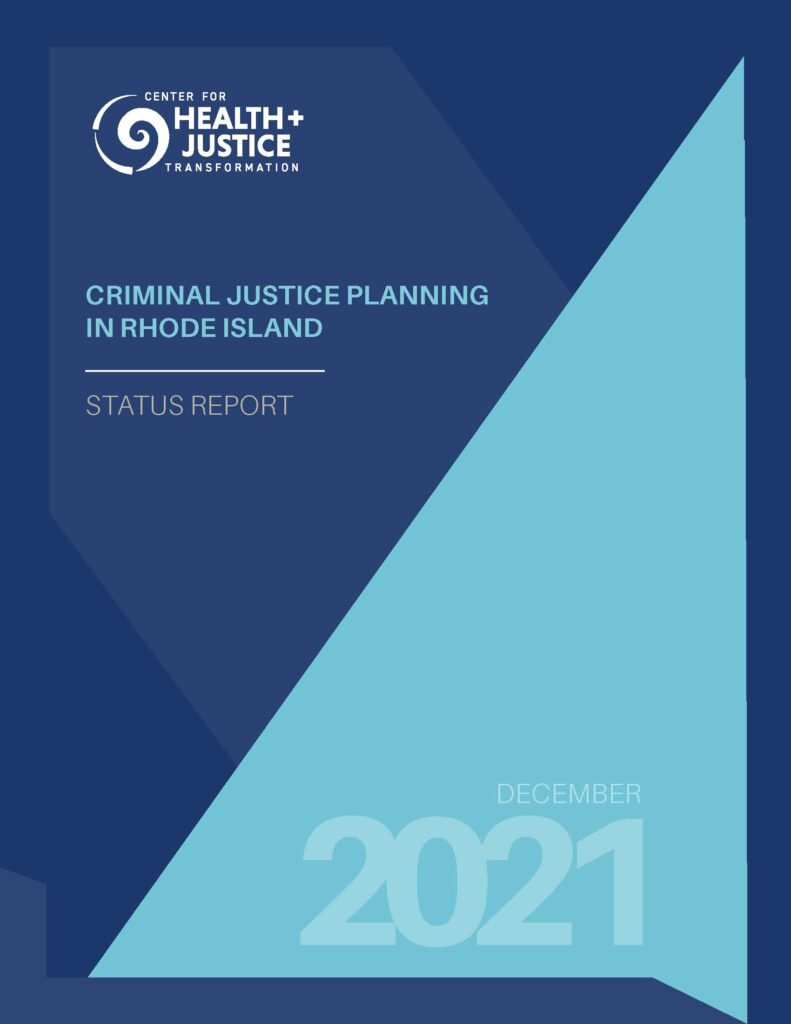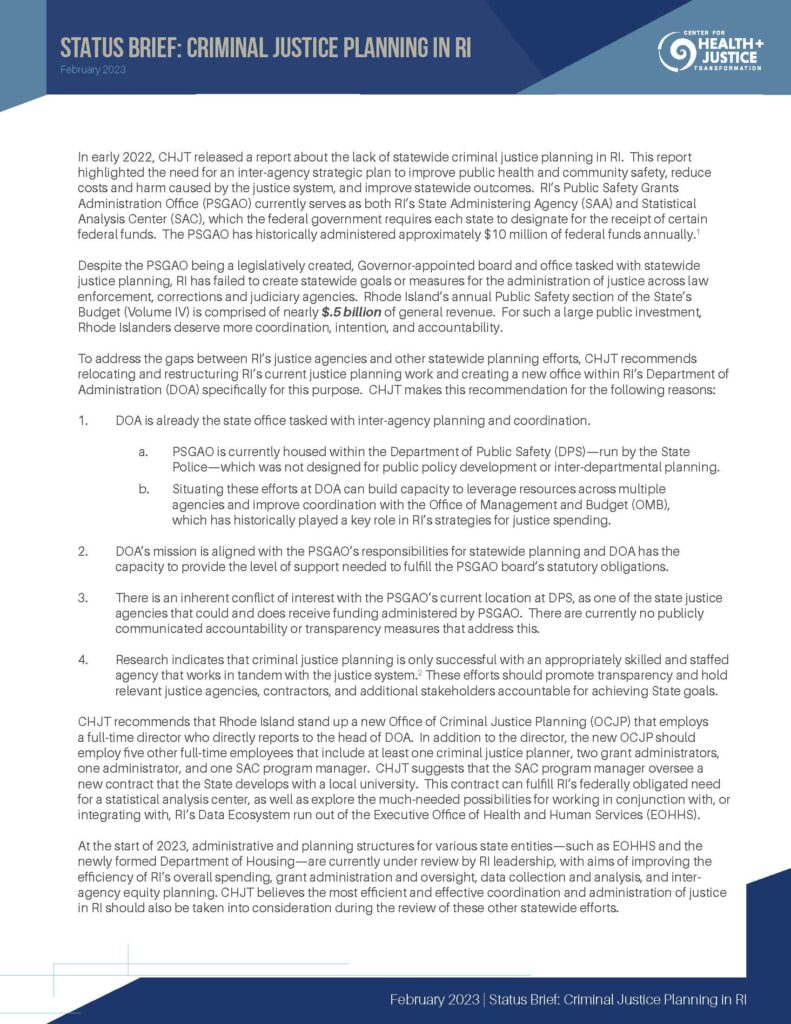Statewide Criminal Justice Planning
Criminal justice planning is a critical component of improving public safety, as it exists to align the strategic goals and outcome measurement across corrections, law enforcement and courts. Experts agree that criminal justice planning should be a governmental function outside of correctional agencies and, in jurisdictions where this is not possible, local government should support and empower criminal justice planners to lead such work on behalf of the state. Across the country this planning function is fulfilled by a variety of entities, including state planning boards or commissions, state planning departments, individual planners, and partnerships between local governments and academia or the nonprofit sector.
Rhode Island is one of six states (along with Alaska, Connecticut, Delaware, Hawaii, and Vermont) that has a unified correctional system, which means that the state operates all of the facilities that hold people with both pretrial and sentenced statuses. There are no local county- or city-operated jails in RI. This, coupled with RI’s small geographic size, provides the opportunity for centralized statewide criminal justice planning to take place in a valuable and uncommon way.
However, RI currently lacks centralized criminal justice leadership, strategy, or planning. This disorganization creates siloed and duplicative efforts, impedes the quality and provision of services, obstructs the attraction of additional resources, and prevents the successful community reintegration of formerly incarcerated individuals.
In an effort to bring attention to and remedy these gaps in the system, CHJT joined the Rhode Island Criminal Justice Policy Board in 2022 as one of three community service organization members appointed by the Governor.
Additionally, CHJT works with state agencies, municipalities, and criminal justice stakeholders to advocate for, better align, and support local criminal justice planning efforts, emphasizing the value and expertise of community-based stakeholders. We act as a convener for government and community stakeholders, promoting national best practices to create a shared vision for recidivism reduction and community safety.
We utilize a public health framework that centers equity in planning and decision-making to deepen understanding of how the criminal legal system works from pre-arrest through adjudication, incarceration, as well as reentry’s impacts on families and communities.
download our report
Criminal Justice Planning In Rhode Island
The State of Rhode Island spends millions of general revenue dollars each year to support its administration of justice, in addition to receiving and spending millions of federal dollars; yet there is no current strategic plan that guides this spending from year to year.
For more than a decade, RI has been lacking sustained leadership, strategy and collaboration across state agencies that serve individuals involved in the justice system. This has resulted in static recidivism rates, missed financial opportunities, fragmented and unaccountable approaches to justice reform, and a lack of data-informed policymaking. As a consequence of the State’s lack of planning, there is no clear statewide vision or long-term goals for RI’s criminal justice system. Read more…
read more
Status Brief: Criminal Justice Planning in RI
RI has failed to create statewide goals or measures for the administration of justice across law enforcement, corrections and judiciary agencies. For such a large public investment, Rhode Islanders deserve more coordination, intention, and accountability. In early 2022, CHJT released a report about the lack of statewide criminal justice planning in RI. This report highlighted the need for an inter-agency strategic plan to improve public health and community safety, reduce costs and harm caused by the justice system, and improve statewide outcomes. We believe Rhode Islanders deserve a justice system that is fair, effective, and efficient. This follow-up brief offers recommendations for RI to address the planning gaps between its justice agencies and other statewide planning efforts. Read more…
Stay Connected
Sign up for our email newsletter and receive updates on our latest trainings and campaigns.


